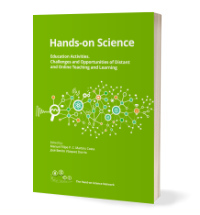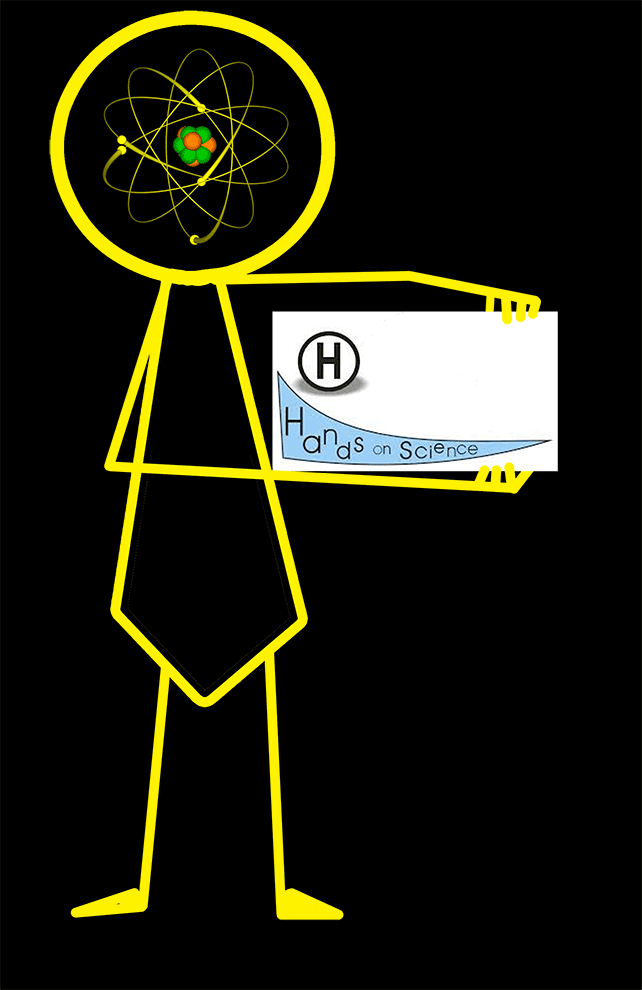⇓ Full List of Contributions ⇓ Presentations
Program – live online
July 19 to July 23, 2021
Zoom meeting HSCI2021 (July 19 to July 23, 2021):
https://videoconf-colibri.zoom.us/j/87937318902?pwd=UENqcENpOTIzSE9ycGR5YTFORkhzUT09
Lisbon time (GMT, Daylight Saving Time: summer time)
https://www.timeanddate.com/worldclock/
| Monday, 19th July 2021 | |
|---|---|
| 13.40 |
Opening |
| 13.45 |
Invited presentation – Introducing the International Council of Associations for Science Education (ICASE), Dr Declan Kennedy, President-Elect ICASE, Senior Lecturer in Science Education, University College Cork, Ireland |
| 14.00 |
Plenary lecture – The progression of children learning about ‘nature’ in our living world, Sue Dale Tunnicliffe |
| 14.40 |
Perception of Recycling and Environmental Pollution in Preschool Children, Emine Akkaş Baysal |
| 15.00 |
Augmented Reality Applications in Preschool Science Education, Kerem İçel |
| 15.20 |
Online STEM Practice Example Pythagoras Cup, Berrak Kocaman |
| 15.40 |
The Effect of STEM Activities on Preschool Children's Basic Process Skills, Kerem İçel |
| 16.00 |
Determining the Opinions of Preschool Children About Science and Scientist Through Short Stories, Emine Akkaş Baysal |
| 16.20 |
The View of Secondary School Students on Using Digital Stories in Social Sciences, Burak Olur, Gürbüz Ocak |
| 16.40 |
The effect of the consequence wheel and the priority pyramid on the English-speaking skills in online lessons, Ayşegül Kutlu Çakın |
| 17.00 |
Humanities, Science and Teaching: The case of vowels of the Portuguese language, Helena Rebelo |
| Tuesday, 20th July 2021 | |
|---|---|
| 13.20 |
Plenary lecture – The Experimental and Historical Foundations of Electricity, Andre Koch Torres Assis |
| 14.20 |
Plenary workshop – Online and Remote Outreach Lectures on Physics Concepts, José Benito Vázquez Dorrío, Miguel Ángel Queiruga-Dios |
| 15.00 |
Plenary lecture – Best World Practices for Hearing Impaired Learners: the Project Overview, Iryna Berezovska, Mariya Golovchak |
| 15.40 |
Lab in a box, Future with Science, Joana Loureiro, Rodrigo Abreu, Joana Gonçalves-Sá, Inês Bravo |
| Wednesday, 21th July 2021 | |
|---|---|
| 13.20 |
Plenary lecture – Down to Earth - literally. Teaching soil, Denise Balmer |
| 13.50 |
Plenary lecture – Young Science Students as Asimov's Followers, Josep Maria Fernández Novell, Carme Zaragoza Domenech |
| 14.20 |
Invited lecture – COVID-19 Engineering Design Challenge, Teresa Kennedy |
| 14.40 |
Physics from teaching to coaching - Tesla Hands-On Science Academy, Emad Hassan El-Shafey |
| 15.00 |
Home Making Videos Help Students to be More Communicative, Hassan Hazarkhani |
| 15.20 |
Introducing Programming to Basic Schools Students Using Robotics, Victor Martins, Manuel Costa |
| 15.40 |
Plenary lecture – Demystifying the basics of Image Processing with OpenCV and Python, Fernando Ribeiro |
| Thursday, 22th July 2021 | |
|---|---|
| 13.20 |
Plenary lecture – Covid-19 Pandemic II Wave in India: Role of Scientoons and Scientoonics, Pradeep Kumar Srivastava |
| 14.20 |
COVID-19 and the Plastic Crisis: two proposals for Environment Education Approaches, Ana Catarina Santos, Tiago Assis, Tiago Pinho, Carlos M. Pereira, Sofia Oliveira, Joana Lourenço, Ruth Pereira |
| 14.40 |
Koffeeco - a residue treating the environment, Leonor Oliveira, João Freitas, Luísa Couto e Tomás Barros |
| 15.00 |
The role of synchronous tools in online learning practices after the pandemics, Sónia Seixas, Victor Rocio |
| 15.20 |
Live streaming outreach: Twitch as an alternative in pandemic times, Carlos Damián Rodríguez Fernández, B Carnero, M Canabal, D Ínsua-Costa, A Doval, A Muñoz-Ramos, R Sánchez-Cruz, R Liñares, X González-Iglesias, MT Flores-Arias |
| 15.40 |
Tangible Objects in ESL Classroom: impact in learning at Primary school level, Cláudia Meirinhos, Liliana Fernandes |
| 16.00 |
Photovoltaic Solar Energy. A Pedagogic Approach, João Castro, Manuel Costa |
| Friday, 23th July 2021 | |
|---|---|
| 13.20 |
Plenary lecture – Animated Scientoons: an opportunity in distant and online teaching and learning science, Vishal Muliya |
| 14.20 |
Scientoon creation and teacher education: a case study, Rupal Mankad |
| 15.00 |
Planning STEM lessons with pre-service classroom teachers: Edible Car (Rolling vegetables). Şule Bayraktar |
| 15.20 |
Candasat II: a satellite in a soft drink can, Francisco Javier Redondas Maseda |
| 15.40 |
SAYANSI! Seeds of Science for a Sustainable Future, Manuel Ballatore |
| 16.00 |
Closing remarks |
Full List of Contributions
(alphabetical order)
- A year of the COVID-19 Lockdown: comparative analysis of Distance Learning approaches in TNMU
- Animated Scientoons: an opportunity in Distant and online teaching and learning science
- Application of the Interrupted Case Method in Undergraduate Chemistry Teaching
- APPS 4 SCHOOL A Citizenship and Development Project with VET Students
- Augmented Reality Applications in Preschool Science Education
- Best World Practices for Hearing Impaired Learners: the Project Overview
- Candasat II: a satellite in a soft drink can
- Chemical degradation of synthetic polymers surgical masks
- Contributions of Postgraduate Studies in Brazil to the Academic Impact of the United Nations: a rapid narrative review
- COVID-19 and the Plastic Crisis: two proposals for Environment Education Approaches
- COVID-19 Engineering Design Challenge
- Covid-19 Pandemic II Wave in India: Role of Scientoons and Scientoonics
- Demystifying the basics of Image Processing with OpenCV and Python
- Determining Preschool Children's Opinions About Science and Scientist Through Short Stories
- Determining The Opinions of Preschool Children About Science and Scientist Through Short Stories
- Down to Earth - literally. Teaching soil
- Environmentally Friendly Homes Acoustic Isolation with Domestic Wastes
- Hands-on an everyday chemistry podcast: the case of Minuto da Química
- History of Science in promoting argumentation for future chemistry teachers
- Home Making Videos Help Students to be More Communicative
- Humanities, Science and Teaching: The case of vowels of the Portuguese language
- Interrupted Case Studies in Undergraduate Chemistry Teaching
- Introducing Programming to Basic Schools Students Using Robotics
- Introducing the International Council of Associations for Science Education (ICASE)
- IT-Based Visualization in Educating Hearing Impaired Learners
- Joint Training on Judo for Deaf and Ordinary Children
- Koffeeco - a residue treating the environment
- Lab in a box, Future with Science
- Live streaming outreach: Twitch as an alternative in pandemic times
- MaiActing, Portugal changing! A Climate Action Project in an 8th grade CLIL class
- Miller polyhedron as a STEAM project
- Modeling a NETmix Reactor for Mixing and Chemical Reaction
- Monitoring of environmental parameters at schools for the improvement of academic performance and airborne diseases control
- Nanosystems for Environmental Remediation - Optical Sensors
- Online and Remote Outreach Lectures on Physics Concepts
- Online STEM Practice Example Pythagoras Cup
- Perception of Recycling and Environmental Pollution in Preschool Children
- Photovoltaic Solar Energy. A Pedagogic Approach
- Physics from teaching to coaching - Tesla Academy for Hands-on Science
- Planning STEM lessons with pre-service classroom teachers: Edible Car (Rolling vegetables)
- SAYANSI! Seeds of Science for a Sustainable Future
- Science Tech Weekend School “Welcome to Photovoltaic Universe!”
- Science, Play and Progression in Early Years
- Scientoon Creation and Teacher Education: A Case Study
- Study of socio-ecological sustainability in the continuing education of Pedagogy teachers from the perspective of gamification
- Tangible Objects in ESL Classroom
- Textual Understanding of Original Research Articles by Undergraduate Chemistry Students
- The Bacteria Geobacter as a Prospective Source of Green Electricity
- The Effect of STEM Activities on Preschool Children's Basic Process Skills
- The effect of the consequence wheel and the priority pyramid on the English speaking skills in online lessons
- The Experimental and Historical Foundations of Electricity
- The role of synchronous tools in online learning practices after the pandemics
- The Sea Starts Here. A success case in Sines (Portugal)
- The View of Secondary School Students on Using Digital Stories in Social Sciences
- Towards Socio-ecological Sustainability in Elementary School through Problem Based Learning
- Transferable Methodologies Between In-Class and Online Learning - A Three-steps Learning Process
- Views of Students from an Integrated Middle Level Technical Course in Brazil on Scientific Inquiry
- Young Science Students as Asimov's Followers
HSCI2021 Presentations



